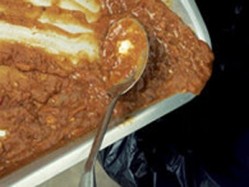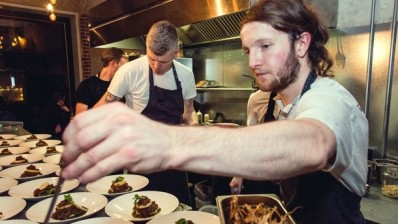Hospitality food waste bill could reach £3bn by 2016, warns WRAP

In 2011 the cost of food being wasted in the hospitality and foodservice sectors was £2.5bn and with the cost of food and recycling set to rise, that figure will only increase WRAP warns in its report Overview of Waste in the UK Hospitality and Food Sector.
The figure, which takes into account the cost of labour to prepare, cook and serve wasted food as well as the cost of ingredients, energy, transport and waste management, is the equivalent of throwing away one in every six meals served.
Restaurants, pubs and hotels had the highest costs associated with food waste of all the sectors investigated, with respective bills amounting to £682m, £357m and £318m.
Other key findings from the report were:
- The total amount of waste, including food, packaging and other ‘non-food’ waste, produced each year is 2.87 million tonnes, of which 46 per cent is recycled, sent to Anaerobic Digestion (AD) or composted.
- Of this, 920,000 tonnes of food is wasted at outlets each year, 75 per cent of which is avoidable and could have been eaten.
- Carbohydrates form the largest percentage (40 per cent) of food wasted.
- On average 21 per cent of food waste arises from spoilage; 45 per cent from food preparation and 34 per cent from consumer plates.
- Of the 'non-food' waste that is thrown away, 56 per cent could have been recycled.
SRA managing director Mark Linehan, said the findings echoed those of the SRA which has been helping restaurants reduce food waste since its launch in 2010 and ran the Too Good To Waste campaign in 2011.
“Reducing food waste makes sense environmentally, socially and economically. As a supporter of the Hospitality and Food Service Agreement, the SRA recognises that there are significant opportunities across the whole sector to reduce costs and improve profit margins by tackling food waste head on," he said.
“We welcome WRAP’s report which reveals shocking levels of waste but which also provides essential information and guidance that will help many businesses to better manage their resources, and recoup some of the money currently spent on often needless waste.”
Linehan said the SRA's own recent research had shown that food waste was the most important sustainability issue for diners when eating out, so it was doubly important to tackle the problem.
"as well as the opportunity to save considerable sums, restaurants can also meet customers’ expectations by reducing their food waste – two compelling reasons to act now," he said.
View the full WRAP Overview of Waste in the UK Hospitality and Food Sector report here.



















